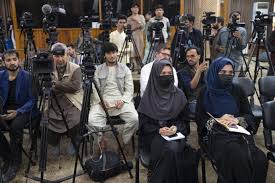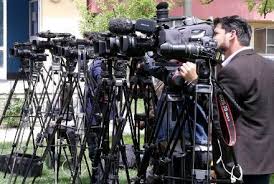Taliban restrictions on the media

Taliban restrictions on the media in Afghanistan have had a profound impact on freedom of expression, information and access to information. Some of these limitations include:
-
Strong Censorship and Content Control: The Taliban strictly monitor the content published by the media and any content that contradicts their ideology or policies is censored. This includes news, reports, articles, and even television and radio programs.
-
Threat and intimidation of journalists and media workers: Journalists and media workers are under severe threats and intimidation. There have been reports of journalists being arrested, tortured and even killed. This situation has caused self-censorship among journalists.
-
Closing of independent media: Many independent and critical media have been closed or their activities have been limited. This has reduced diversity in news and information sources and deprived people of access to news and different views.
-
Internet restrictions and filtering: The Taliban limit access to the Internet and filter websites and social networks. These measures have reduced people’s access to online information and communication.
-
Restrictions on women in the media: Women reporters and media workers have faced severe restrictions. Many women have been fired or forced to leave their jobs. These restrictions have led to a decrease in the presence of women in the media and a decrease in diversity in reports.
-
Promotion of official propaganda: Taliban use the media to promote their official propaganda. This has reduced public trust in the media and reduced access to independent and unbiased information.
-
Lack of protective laws: The lack of protective laws and independent regulatory bodies to protect freedom of expression and the rights of journalists has worsened the situation of the media. This issue increases self-censorship and reduces the quality of reports.
These restrictions have wide-ranging effects on the Afghan society:
- Decreasing public awareness: Limited access to independent and impartial information reduces public awareness about important social, political and economic issues.
- Increase of rumors and misinformation: Media restrictions increase rumors and misinformation in society, because reliable sources of news are reduced.
- Weakness in government accountability: The lack of independent and capable media reduces the government’s accountability and increases corruption.
- Decreasing public trust: Media restrictions and controls decrease public trust in the media and the government.
To improve the situation, it is necessary that the Taliban respect the freedom of speech and the rights of journalists and provide the possibility of independent media. International cooperation can also be effective in supporting media freedom and promoting access to independent and impartial information in Afghanistan.

Investigating the media situation in Afghanistan
The media situation in Afghanistan has changed drastically after the Taliban came to power and has faced many challenges. This situation includes the following:
-
Extreme control and censorship
The Taliban strictly control and censor the content published by the media. Any content that contradicts the ideology or policies of the Taliban will be censored. This includes news, articles, television and radio programs. -
Threat and intimidation of journalists
Journalists and media workers are under severe threats and intimidation. Many of them have been arrested, harassed, and there have even been reports of journalists being killed. This situation has caused self-censorship among journalists. -
Closing of independent media
Many independent and critical media have been restricted or closed down. This has reduced diversity in news and information sources and deprived people of access to news and different views. -
Internet restrictions and filtering
Internet access is severely restricted and many websites and social networks are filtered. These restrictions have reduced people’s access to online information and communication. -
Restrictions on women in the media
Women journalists and media workers have faced severe restrictions. Many women have been fired or forced to leave their jobs. These restrictions have led to a decrease in the presence of women in the media and a decrease in diversity in reports. -
Official Propaganda Promotion
The Taliban use the media to promote their official propaganda. This has reduced public trust in the media and reduced access to independent and unbiased information. -
Lack of protective laws
The lack of protective laws and independent regulatory bodies to protect freedom of expression and the rights of journalists has worsened the situation of the media. This issue increases self-censorship and reduces the quality of reports.
The effects of this situation on society:
- Decreasing public awareness: Limited access to independent and impartial information reduces public awareness about important social, political and economic issues.
- Increase of rumors and misinformation: Media restrictions increase rumors and misinformation in society, because reliable sources of news are reduced.
- Weakness in government accountability: The lack of independent and capable media reduces the government’s accountability and increases corruption.
- Decreasing public trust: Media restrictions and controls decrease public trust in the media and the government.
Suggested solutions:
- Respect for freedom of speech: The Taliban must respect freedom of speech and the rights of journalists and provide the possibility for independent media to operate.
- Strengthening of independent regulatory institutions: It is necessary to establish and strengthen independent regulatory institutions to protect the freedom of the media and the rights of journalists.
International Cooperation: The international community should play an active role in supporting media freedom and promoting access to independent and impartial information in Afghanistan.